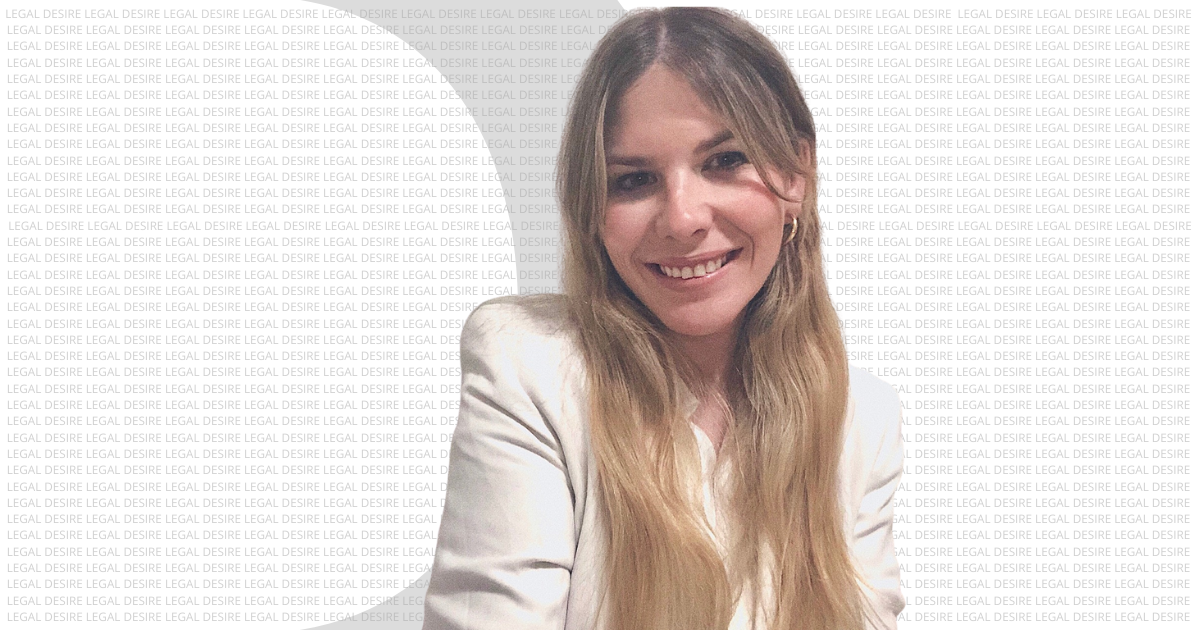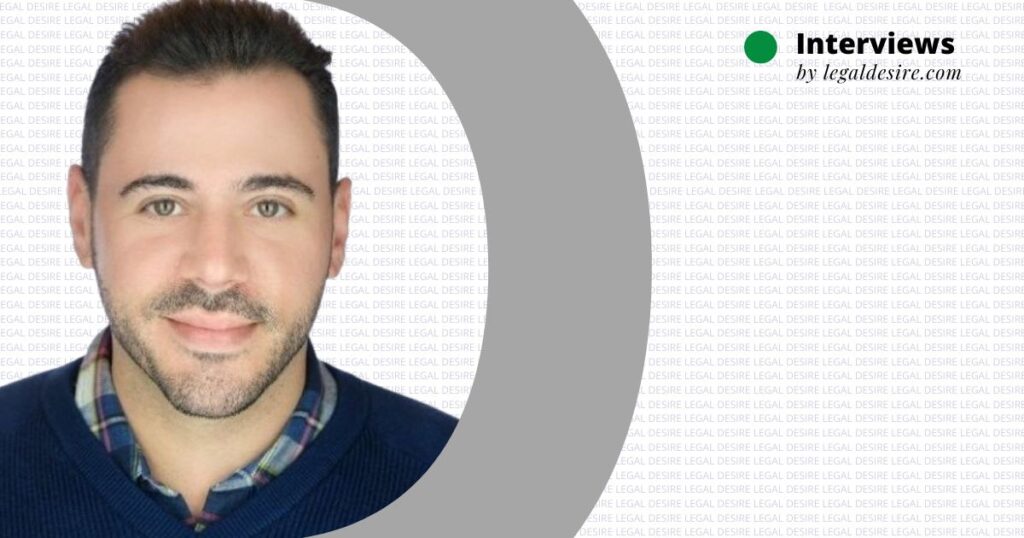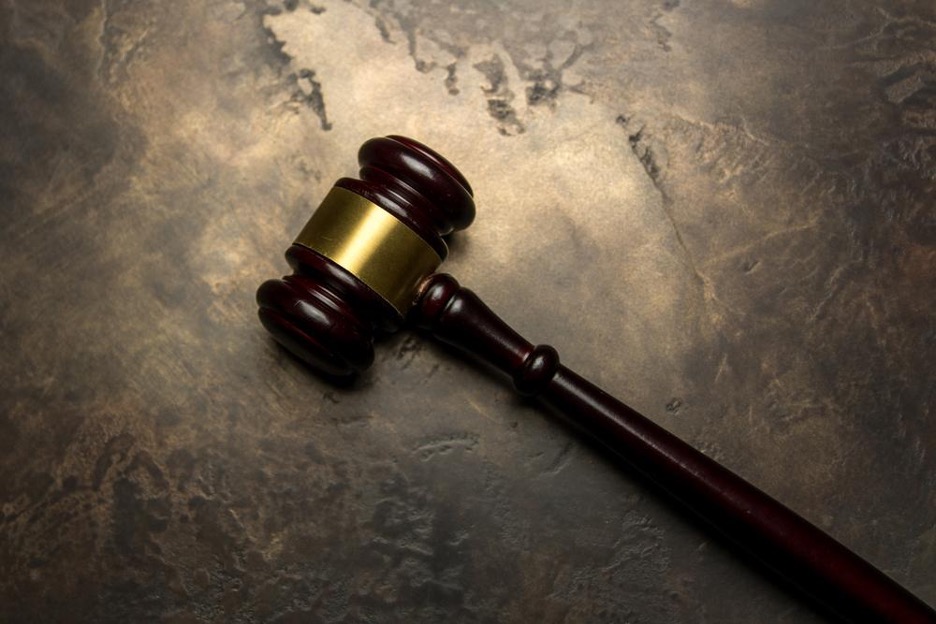Now Reading: In Conversation with Isabel Gomez, A Lawyer with Strong Practice in Fashion Law
-
01
In Conversation with Isabel Gomez, A Lawyer with Strong Practice in Fashion Law

In Conversation with Isabel Gomez, A Lawyer with Strong Practice in Fashion Law
Isabel Gomez, is a Spanish qualified lawyer since 2016 and on her way to qualify as a Solicitor in the UK in 2022. She studied a Law Degree in CEU San Pablo University in Madrid (Spain) then completed her law studies with an LLM in Business Law by IE Business School and a Fashion & Law Executive Master studied in Centro de Estudios Garrigues, which is a law school managed by one of the most important law firms in Spain and Europe, with a strong practice in Fashion Law. Here’s a candid conversation on her professional journey and about her role:
Can you introduce yourself to our readers?
My most recent academic achievement has been passing the MCT Exam (QLTS), as the first step on my journey to become a qualified English solicitor.
I started my career as a lawyer working in-house in a media company, where I acquired a deep IP law knowledge and experience, however, I have not always been involved in IP; I have a diverse background as I have been a legal counsel in an international insurance broker for more than 3 years. I moved to London in 2020 to start my career within the fashion industry working as a paralegal in River Island, and currently, I am a Legal Counsel in Lidl GB.
I have a professional Instagram account @fashionlaw.esp and a fashion law blog fashionlaw.es. And you can always reach me out through my LinkedIn account
Can you tell us a bit about the factors that went into the decision to take Fashion Law as a career?
When I started my law degree, I was not sure about becoming a lawyer myself, I have always had this creative spirit which I thought (back then) I would not be able to fulfill working as a lawyer. Now I know that this was a huge mistake.
At least in Spain, we are so young when we need to step in and take this important decision “what am I going to be for the rest of my life?”. The information you have at that moment is limited, and in my case, even if I gathered all the information I could… I ended up thinking that being a lawyer was only dealing with divorces, labor issues, or company mergers…didn’t sound fun at all for me.
If that was my start, why choosing a law degree then? Simple: Law is a safer path than fashion and we were in the hugest economic crisis of all times. The choice was clear at that point, no time for dreams.
To be fair with the “traditional fields of law”, I have to say that I found them quite enjoyable and useful on my first year, I used to talk about civil law in a very enthusiastic way to my friends, but suddenly this passion disappeared. I felt unmotivated, I felt that my creative spirit was unfilled and I even reconsidered to throw it all to the bin and start a new path within what I have always known was my place: Fashion. But even choosing where to work in fashion was not easy, and I was neither attracted to any specific field.
I was deeply lost and googling even the most inconsistent things was the only way I thought could help me. It was that exact moment when I found it (or it found me): Fashion & Law, and in a twinkling of an eye, I knew it: this is my path and it is there for me to follow, I am going to be a Fashion Lawyer.
Fashion law helped me to retake the passion I used to have for the law and to become even more passionate on its application as I saw myself applying it into my dreamed industry, couldn’t be better? I don’t think so.
My magic discovery was back in 2013 and, at that time the mere combination of the words “fashion” and “law” was a joke. I did not care, I started a blog, I went to the few conferences I found, basically I was a complete autodidact on it. Mine was the first end-of degree project of the university’ history about fashion law: the legal issues of the fashion designs, I still remember the faces of the professors in the panel when I started taking about the red sole conflict.
What are some of the biggest legal challenges facing the fashion industry today?
It is a mistake to think that fashion law is reduced to IP Law, but it is foolish also to not consider intellectual property one of the main pillars of it. The legal challenges are even more difficult in this field due to the subjectivity of it – is the use of purple flowers instead of lilac ones enough to differentiate a design from the other? Which is then the overall impression in an informed user? How can we identify the informed user? In the past few years, we have seen interesting case law that developed points of law to help the lawyers to resolve these issues as the time passes, but we still have a long way to go.
Knockoffs and copycats existed and will always exist; is part of the lifecycle of the fashion industry. Obviously, I am not saying that copycats are right, but still this is another issue the in-house lawyers working in the fashion industry will be dealing with.
In the past few years, an environmental sustainability concern has been developed among the fashion industry, from luxury fashion houses to fast fashion brands. This is, without a doubt, a fantastic improvement considering fashion is one of the most contaminants industries worldwide. This increasing concern carries some extra work on compliance and legal obligations, for example, the ability to trace a product within the whole supply chain to ensure the entire development of it has been human rights and environmentally respectful.
Needless to say: data protection is a big issue and we cannot turn ourselves away from it if we take in mind how the newest techs advancements are matching with fashion in order to create new ways of buying, to offer consumer-focused solutions with apps that show you how a lipstick color fits on you by basically taking a picture, the intelligent fit-rooms where you do not need to physically try on the clothes to see how they fit… and thousands of new features and tools that are creating new legal fronts daily.
Are there any misconceptions about being a lawyer in the fashion industry that you’d like to address or debunk?
For sure, and I am so happy that you asked me this. Since I started, I faced many jokes back then. The common view of you as “a Fashion Lawyer” automatically creates a “so, are you going to sue me for this outfit?” reaction in people. Others just thought that it was superficial and that “no serious lawyer would be dealing with that issues” as it was not “a real law field”.
I had to hear all these things, I had to hear that my dream was stupid, that I was never going to be able to achieve it… and here we are right now. Nowadays all these judgments are practically inexistent as people have already understood the importance of lawyers who are truly able to understand the fashion industry, the legal problems fashion faces, and the applicable law itself. Nowadays people know that specialization is key and that specialized fashion lawyers are an asset for a fashion company, the ones who really will prevent the specific risks for them.
Fashion is not superficial, fashion is not cynical, fashion is one of the industries that move more money in the entire world and, as any other, needs specialized lawyers.
I believe there are still a few people with such outdated beliefs, but thankfully we are all moving on and demonstrating how mistakenly conceived those were since the beginning.
How should a fashion lawyer trademark attorney differentiate themselves from any other trademark attorney?
To be honest, I am not a trademark attorney itself and even if it is clearly an advantage, you do not need to be one to introduce yourself into Fashion Law. Nevertheless, it is true that some IP background experience is necessary for a better understanding of the issues that may arise.
My advice would be, either to a trademark attorney or to a commercial/IP profile, mainly to participate in forums, go to conferences, read different articles or books (there are many books that have been launched internationally recently about different aspects of Fashion Law), but above all, try to create a personal brand which helps you to be identified as a fashion specialized lawyer.
In my case, I choose to start a blog, I went to conferences, I did networking and I worked really hard to finally get to be in fashion (I even had to move from my country of origin!); but for you could be any other path. In these times, with social media we can do anything we want, this means that, with something as simple as a fashion law focused Instagram account, you could make some noise and help others visualize you as a fashion lawyer, showing your passion and interest in that field, which sometimes is as important as a previous experience on it.
Having said that, nothing comes for free so there should be study, effort, and preparation behind all of this, which maybe will not be seen on the surface, but it will make you a real, reliable and successful fashion lawyer.
What advice would you give to prospective LL.M. students looking to break into the industry?
I would say primarily to focus as much as they can on IP and commercial matters, now there are multiple options IP focused or even, if they have the opportunity to, attend a Fashion Law LLM, for example, the one in Fordham University.
When I had to choose my LLM, I did not have this guidance so I ended up in a business law one, which made it more difficult to me to introduce myself to anything related to intellectual property as, primarily, all the law firms specialized on that field were asking for someone with specific studies on Intellectual Property.
I had to run through my own obstacles race during my journey to finally become a fashion lawyer and I decided to study a specific course about it, but still, I feel that business law LLM also helped me. We cannot forget that fashion company are indeed companies and, as a legal counsel specialized in fashion law (if you choose that path) you will need to be able to offer, not only IP knowledge but a capacity to look at the big picture and to provide solutions taking into account the overall of what a company itself could involve when it comes to legal issues.
So obviously an IP path makes your life easier when it comes to fashion law, but nothing is impossible if you work for it, so there is hope for everyone who, as I did, choose a different path at the start of their careers and now wants a fresh change, you just need to have the courage that it takes!
What advice do you have for young lawyers who wish to pursue a career in new, emerging fields of law?
My main advice would be simple: be confident, be brave, do not be afraid to follow your dreams.
I know that it may sound cheesy but is true. Many people will laugh at you, trying to take you down, trying to discourage your braveness just because they are not brave enough to take the risk to pursue their dreams. I am not talking only about your friends and family, I am talking about the law trends and the skeptical professionals that would rather stay in their traditional fields as they only consider that those ones are “true law” and anything else could not be considered so.
Remember when data protection was a niche nobody worried about? Look now.
The world is changing, the market is changing, how we interact with each other changes day to day – why shouldn’t the law be changing? Why should not be new legal fields appearing? I feel that it is a must, and those who have the passion and strength to start with those developing new “legal fields” are the ones that lead the profession to evolve, so, as I said, be brave.
What is the future of Fashion Law in your Country?
If I speak from a local perspective, and from my experience, even if Spain has one of the biggest and most important fast fashion companies in the world, the Spanish law firms have started only a few years ago to realize the importance of this field and to develop specialized departments but still, I would say that a fashion law career is not impossible but not that easier to develop than in other countries, as for example could be the UK, where you will find more opportunities to be a legal counsel in a fashion company.
Generally speaking, and with a worldwide approach, I think fashion law just started to have all the potential it will be having in the coming years. Fashion brands – and their in-house counsels – have been aware of the huge importance of their intellectual property assets since their start, and designs battles in courts are not something new but are true that now is more well sounded and known.
The dispute between the ones pro-registration and the ones against-registration of designs continues – does the registration of designs benefits the market? Or does it prevent the new creation and evolution of it? Is a design capable of being protected through copyright? We need much more case law on all of this.
But, as I mentioned earlier, without any doubt the main issues that will occupy the fashion law calendar in the upcoming years are tech innovations and environmental sustainability. E-commerce issues, supplier traceability, compliance and ethics issues, new tech-stores, AI, apps, holograms… where can I stop?
To Explore Insights about Fashion Law, Visit our exclusive publication at www.fashionlawjournal.com
Submit your feedback or tips for the interview column to office@legaldesire.com
Interviewed by:
Apoorva Mehta, Executive Manager – Legal Desire assisted by Sristi Raichandani, Executive Asst. (Research), Legal Desire










